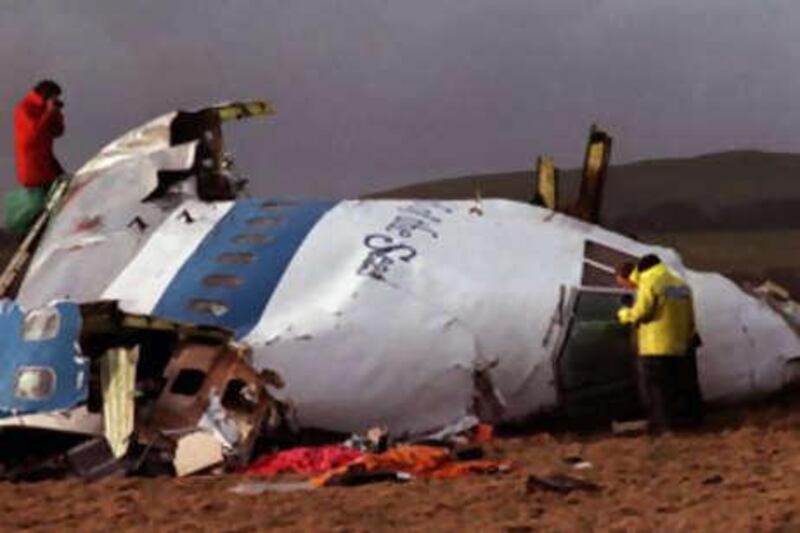The United States said yesterday that Libya has paid the full US$1.5 billion (Dh5.5 billion) to compensate victims of terrorism, clearing the last hurdle to a full normalisation of ties with Washington. Meanwhile, the US president George W Bush, fulfilling his part of the compensation bargain sealed in August, signed an order yesterday to restore Libya's immunity to legal action pending in US courts, US officials said.
David Welch, the assistant secretary of state for Near Eastern Affairs who led negotiations for the deal, said families of terrorism victims could start receiving payments within days. The sum is to compensate US and other families for the 1988 bombing of a Pan Am flight over Lockerbie, Scotland, that killed 270 people, and for US families of a Berlin disco bombing that killed two Americans and hurt 50 others.
"This is an important, significant moment," Mr Welch told a press conference in Washington. "This removes the last obstacle to a normal relationship between the United States and Libya." Its signing in August by Mr Welch and the Libyan deputy foreign minister Ahmad Fituri prompted a visit to Tripoli in September by the US Secretary of State Condoleezza Rice, who became the first US secretary of state to visit Libya in more than 50 years.
And the receipt of the full amount agreed under the deal now clears the way for the Senate to approve Gene Cretz, whom Mr Bush has nominated as ambassador to Libya, to his post in Tripoli and free up the funds for a new embassy there. It caps what Mr Welch called a nearly five-year "historic transformation" for Libya ? once treated as an international outlaw. After being severed in 1981, US-Libyan relations were restored in early 2004 a few weeks after Libyan leader, Colonel Moamer Kadhafi, announced Tripoli was abandoning efforts to acquire weapons of mass destruction.
In 2006, the United States announced a full normalisation of ties, dropping Libya from a State Department list of state sponsors of terrorism and raising diplomatic relations to the level of ambassadors. On August 14, the two sides signed the US-Libya Claims Settlement Agreement in Tripoli to set up a $1.8bn "humanitarian" fund from voluntary contributions from companies and other sources, US officials said.
Some $1.5bn was set aside for American and other non-Libyan families, including those who lost relatives on the ground in Lockerbie, and the remaining $300mn earmarked for Libyan victims. After the disco bombing, Libya was subjected to several retaliatory US air strikes on Tripoli and Benghazi on April 16 1986, in which 41 people were killed, including an adopted daughter of Col Kadhafi. Mr Welch could not confirm that the Libyan portion had been deposited in the fund which is in a bank account in Libya. Nor could he say where the money came from, although he conceded he had "an idea."
In a statement, Ms Rice's spokesman Sean McCormack said the deal offers "a measure of justice to families" of US victims of terrorism and paves the way for a further improvement in US-Libyan ties. "Libya is an important partner in the common effort against terrorism and serves as a model for other countries that may wish to renounce isolation and rejoin the community of nations," Mr McCormack said.
*AFP





